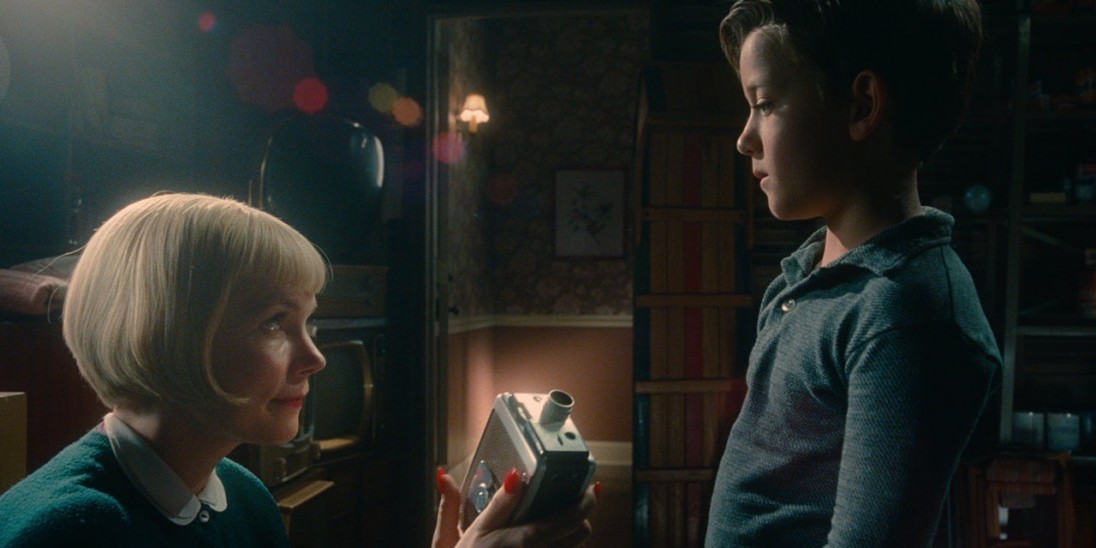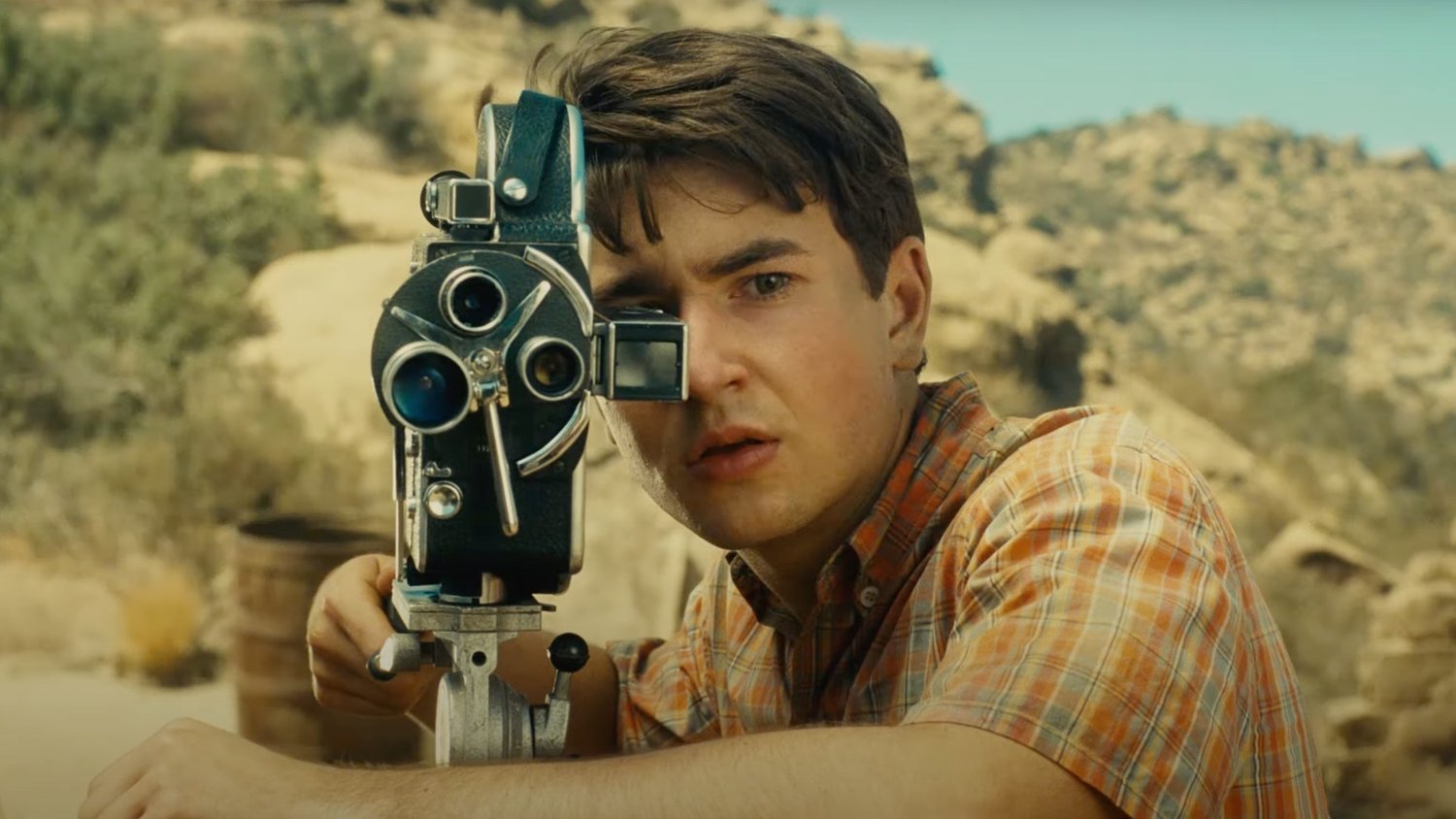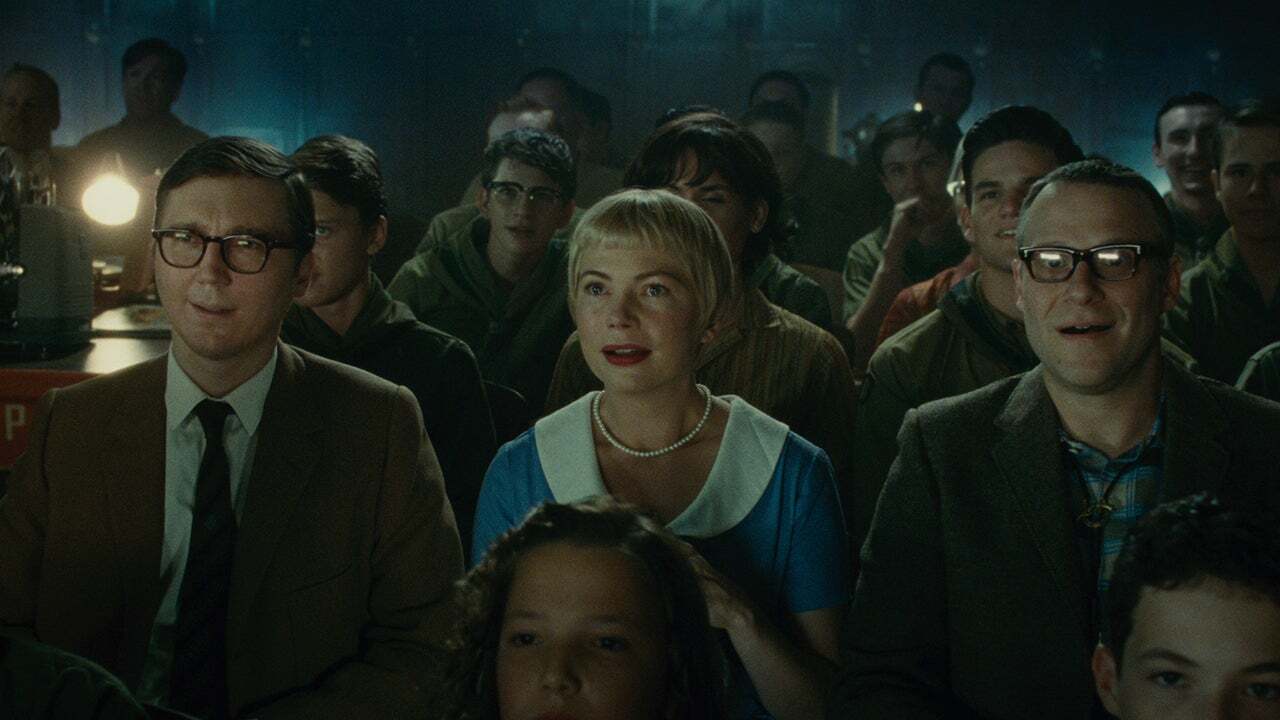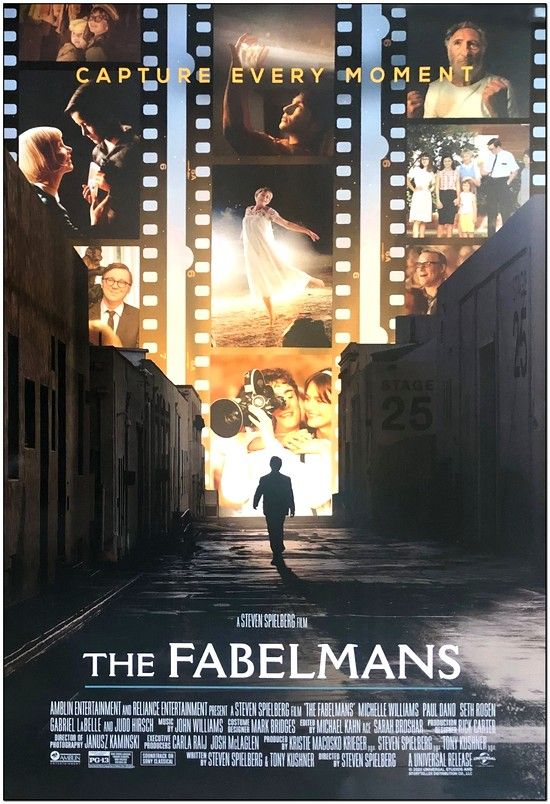Spielberg’s latest film is more than just a retelling of how he came to love cinema, it’s a heartfelt and endearing message about the cost of being true to yourself.
If Steven Speilberg decided to stop making movies tomorrow, The Fabelmans would be a fitting bookend to his groundbreaking and hugely influential career. Not only does it bolster his position among the greatest in the industry by expertly demonstrating many of the same ideas and trademarks his work is best known for, but it expresses the lessons and knowledge he has gained working more than half a century in cinema. This is exactly the type of film you make when you have had success in almost every other facet of filmmaking – instead of pushing the boundaries in search of something new and exciting, it turns the gaze inward and mines the familiar corridors of the filmmaker’s own experiences.
The Fabelmans
Directed By: Steven Spielberg
Written By: Steven Spielberg, Ivan Kushner
Starring: Gabriel LeBelle, Michelle Williams, Paul Dano, Seth Rogen
Release Date: November 11, 2022
Don’t misunderstand this approach as lacking inspiration or drive. The Fabelmans isn’t another Hollywood movie existing simply to bask in the glow of past Hollywood success, nor does it try to recreate it. Audiences may be tempted to judge The Fabelmans as another self-absorbed ego-trip by one of the most powerful men in Hollywood. But viewing the film in such a narrow perspective will blind you from what it is trying to accomplish. This film isn’t an exercise of self-indulgence, it is an act of humility, demonstrating a vulnerability and allowing that experience to improve the lives of others.
In all works of art, the most effective pieces are always those pieces into which the artist has invested themselves the most completely. They reflect something of which the artist is deeply, and intimately familiar with, which allows others to connect because we sense the authenticity of the emotion. Steven Spielberg doesn’t have any real world experience surviving shark attacks, meeting extraterrestrials, or fighting in WW2. He does have experience living in a complicated family where emotions from domestic relationships can become hugely influential, or detrimental on the life of an individual.

That bond, or lack of bond, with those who are closest to him is what Speilberg has utilized as his primary inspiration in nearly all of his films. It is a common thread that gives us the heart of a Spielberg movie. The Fabelmans is simply the ultimate iteration of Speilberg’s go-to expressions as a filmmaker. While he has always worn his inspirations on his sleeves, The Fabelmans is a Spielberg film turned inside out. Rather than using a cinematic experience to demonstrate the importance of the bonds of a family, Spielberg focuses on the family unit as inspiration for a larger cinematic experience.
The embellished autobiographical film opens with Spielberg’s young doppelganger (Sam Fabelman, portrayed by Gabriel LeBelle) witnessing his first film, The Greatest Show on Earth. One scene in particular both fascinates and devistates him; a train crash. His obsession causes him to crash his expensive train set, much to the chagrin of his parents, but he still can’t get it out of his mind. They decide to let him film it with the family’s 8mm camera, so he can watch it over and over, and a life-long obsession with movies begins. The film flashes forward in time, demonstrating Sam’s growing talents as a young filmmaker as he documents his family and later begins to make his own movies with his boy scout group.
But all is not well in the Fabelman household. Sam’s father Burt (Paul Dano) is an electrical engineer working on cutting edge computer technology, and he comes to place importance on his work over his family. Meanwhile, Sam’s mother Mitzi (Michelle Williams) is falling in love with Burt’s best friend Bennie (Seth Rogen) which is further driving the family apart. Against these domestic complications, Sam’s hobby is making things even more difficult. Burt places huge emphasis on his math and science background, something Sam doesn’t have interest in. This causes Burt to see Sam’s interest in filmmaking as a waste of time. Likewise, it is Sam’s home movies which eventually convince his mother of her true feelings towards Bennie.

Mitzi is a talented pianist who gave up a potentially promising career as a musician in order to become a mother. It’s the type of sacrifice which weighs heavily on the film. In one very important scene, Sam’s distant uncle Boris (Judd Hirsch) comes to visit, recounting stories from his time as a circus performer. His message to Sam is that he will have to choose between his family and his obsession (art); no compromise is possible. Shocked by the recordings of his mother’s infidelity, Sam decides to stop making movies. He comes to associate filmmaking with the loss of innocence of his youth, and gradually comes to resent his mother because of it.
This theme, of being presented with difficult no-win situations is the central pillar of the film. It’s the conflict between passion and practicality, and Speilberg paints art (and really, film) in the middle of it all. How do we reconcile between our deepest obsessions and the reality of our life? What happens when we realize we need those obsessions to keep on living? Sam, in his inexperienced youth, often makes the wrong choice. But ultimately, as he learns from those mistakes, he comes to grow up and realize how we must live with our sacrifices.
Thus, The Fabelmans is not a love letter to cinema. While it expresses Sam’s wide-eyed fascination with the art of cinema, and demonstrates the power of it, the ultimate message is one of caution. Film can be a powerful tool. It can bend reality towards a particular perspective, or it can show the truth we don’t really want to see. The potential of film, along with all of our individual interests, is something we can get lost in. But the commitment which is essential for mastering any craft comes at the expense of something else. While Spielberg doesn’t go as far as regretting his decisions, there is a sense of “what if” he explores in this film.

The Fabelmans is also a movie about making movies, and perhaps the most entertaining attribute is seeing Spielberg’s child-like obsession with the medium recreated as the…uh…obsession of a child. Those moments when Sam is crafting his film flow like fine-tuned clockwork, showcasing Spielberg’s aptitude for thrilling motion and spectacle. There’s something special about a veteran director with all the tools in his arsenal capturing an earlier version of himself just learning the ropes. This experience affords a number of witty moments where Spielberg tears down the fourth wall. These moments provide the emotional film with a lighter, more free-flowing tone.
As a young stand-in for Spielberg, LaBelle brings enough of himself to make Sam feel like a real character and not just a voice for his director’s cinematic memoir. Dano + Williams are also well-versed, providing an important sense of nuanced incredulity to the impact of their behaviors on their family. Against this, Sam seems to catch on to things quicker than the others, which suggests he is more a representation of the veteran Spielberg’s perspective upon this time in his life rather than someone living through it for the first time. This impression reveals the cathartic quality of The Fabelmans which has more universal appeal than in this specific setting. It’s a film that only works if its creator provides the audience with authentic access to his own insecurities. Thankfully, that’s exactly what Speilberg has accomplished.














